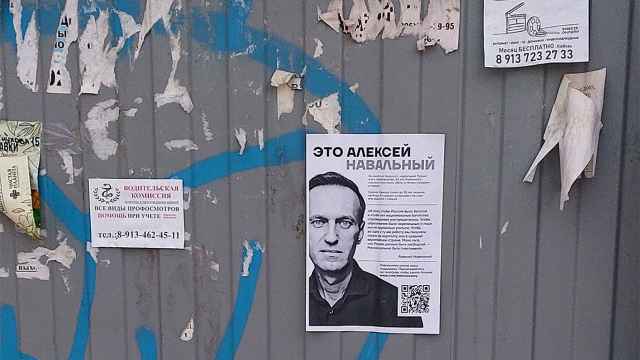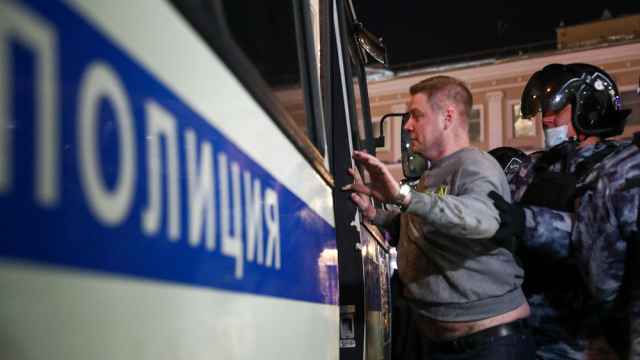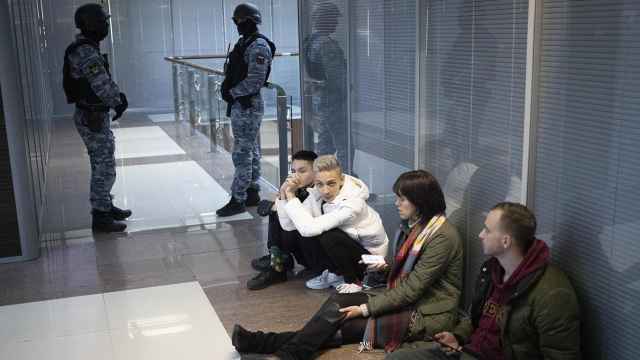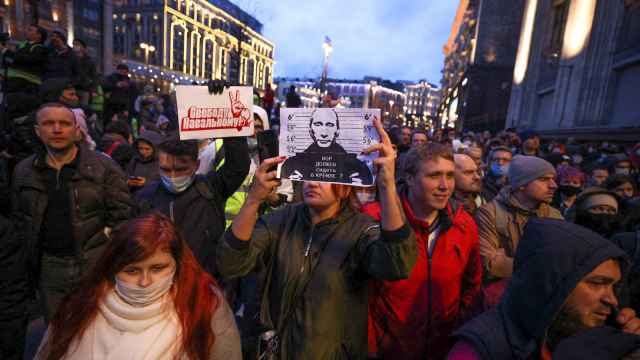The former head of jailed Kremlin critic Alexei Navalny’s St. Petersburg headquarters said Wednesday she has left Russia, becoming the latest opposition figure to depart the country amid a wide-reaching crackdown on dissent.
Irina Fatyanova said she relocated to an unspecified country last week after the jailing of another member of Navalny’s regional political network, Liliya Chanysheva, on retroactive extremism charges.
Fatyanova said the arrest of Chanysheva, the former head of Navalny’s Ufa headquarters, “changed a lot and helped me understand that I needed to leave.”
“My red line has been shifting over the past year,” Fatyanova wrote on Facebook.
“I was ready to be fined, spend days in detention, searches and interrogations… At some point, my line shifted to a criminal sentence of several years,” she added.
Regional Navalny coordinators like Chanysheva and Fatyanova are subject to criminal charges of creating an “extremist” organization after a court outlawed Navalny’s groups — both peaceful opposition movements — in June.
Several leading Navalny allies have resettled in the Baltics and the ex-Soviet republic of Georgia since his groups were banned.
Critics attribute these exits, as well of those of other prominent Kremlin critics, to what they call Russia’s widening crackdown on independent voices that started ahead of September's parliamentary elections, where the increasingly unpopular pro-Kremlin ruling party kept its legislative majority.
Election officials banned Fatyanova from running for St. Petersburg’s legislative assembly over her affiliation with Navalny’s “extremist” network.
Navalny was sentenced to 2.5 years in prison in February on old fraud charges he calls politically motivated after surviving a nerve agent poisoning he blames on the Kremlin. His arrest upon returning to Russia from recovery in Germany helped spark nationwide protests where thousands were detained.
A Message from The Moscow Times:
Dear readers,
We are facing unprecedented challenges. Russia's Prosecutor General's Office has designated The Moscow Times as an "undesirable" organization, criminalizing our work and putting our staff at risk of prosecution. This follows our earlier unjust labeling as a "foreign agent."
These actions are direct attempts to silence independent journalism in Russia. The authorities claim our work "discredits the decisions of the Russian leadership." We see things differently: we strive to provide accurate, unbiased reporting on Russia.
We, the journalists of The Moscow Times, refuse to be silenced. But to continue our work, we need your help.
Your support, no matter how small, makes a world of difference. If you can, please support us monthly starting from just $2. It's quick to set up, and every contribution makes a significant impact.
By supporting The Moscow Times, you're defending open, independent journalism in the face of repression. Thank you for standing with us.
Remind me later.






